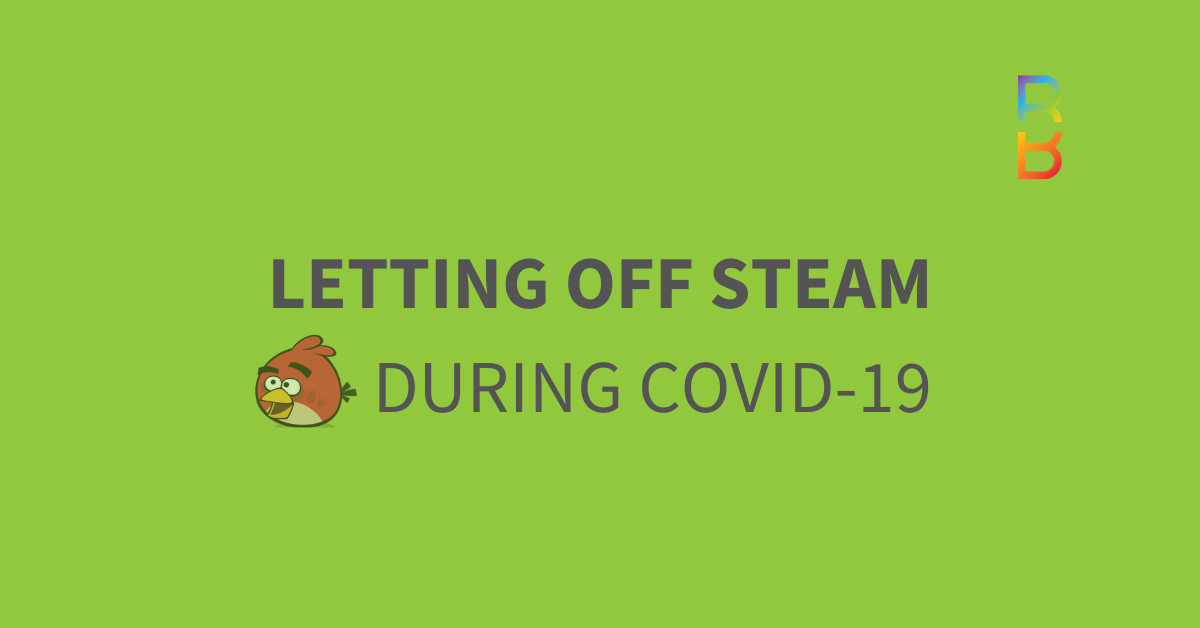We are all experiencing different journeys during COVID-19.
Parents are finding it hard to balance homeworking with looking after their kids. Others are worrying where the next pay packet is coming from. Whether the business they own or work in will survive. As one friend cares for a sick family member, the other is unable to visit her mother in hospital. She continues to manage her own health conditions. Whilst a neighbour and first-time dad worries for the safety of his new-born. Preparing to return to the front line and to avoid bringing the virus home. Let's not forget those who are self-isolating, single and living alone, who are feeling massively detached from their friends, partners, family and community. And what about our homeless population?
A New Psychological Dimension
It's fair to say, none of us have experienced a situation like this in our lifetime. The uncertainty around how long it will last, having to find new ways to adapt in unusual circumstances and not knowing what the impact will be, has introduced a new psychological dimension. One which feels unfamiliar and surreal.
It's tempting to want to try and predict the future. Yet the reality is, the information to get those answers, is sketchy at best. Which leaves us in limbo. In a game of uncertainty that no one really wants to play.
A large proportion of us, no matter what our story, are instinctively starting to mourn a loss in freedom of movement, social engagement and financial stability, all to differing degrees - mourning a liberty we once enjoyed prior to the pandemic. As a result, angry birds are trying to nest in our psyche.
Nesting Angry Birds
Anger is one of the five emotional stages of loss. A normal emotional reaction to people or events that threaten our way of life. It can make us behave badly towards others or withdraw from our trusted circle. Damaging personal, work and community relationships.
An angry bird is a psychological intruder with a destructive purpose and agenda. We either find a way to soothe and diffuse our angry bird or let it squawk and flap about until it wears us, and others out.
There are several different types of angry birds. Each with their own set of irritation triggers. Let’s use some of the Angry Bird characters from the Angry Bird Movie, to determine whether an angry bird is pecking at your head.
The Anger of Red
You have become cynical, believing people are only thinking about themselves. Concerned about protecting your own interests, excluding the well-being of others. Plans may already be in place to protect your stock of toilet roll and you are preparing to wrestle your mythical foe for packets of pasta and your favourite tinned soup. Only concrete evidence to the contrary will dissuade you from your current course of action. Consequently, you have become more short-tempered, antagonistic, sarcastic and grumpy towards others.
The Anger of Chuck
You may have no filter and find this is getting you into trouble. Forcefully telling everyone exactly what you think and how you feel about the situation. You flit between brutal honesty and the inappropriate, rarely being considerate of how others are feeling. You may flounce around saying things like 'Am I the only one who gets how serious this is' or 'This is bollocks - I hate every second of it! COVID-19 is just fake news, isn't it?'
You believe your need to off - load is greater than the needs of others.
The Anger of Bomb
Normally you are chilled but the separation from your trusted people is getting you worked up. You feel like you are ready to explode. You love hanging out and are finding the separation tough. Even though Zoom is keeping you from going completely cuckoo, you are at boiling point. In unknown territory, desperately trying to find a way to diffuse your bomb.
The Anger of Terence
You normally say little about what you are thinking and feeling. Though the occasional growls and twitters provide clues to how annoyed you really are. Zoom fatigue is setting in and you are spitting feathers. You have become somewhat self - righteous. Demanding everyone in the flock observes and obeys the new regulations.
Are You Harbouring An Angry Bird?
The truth is, most of us will harbour an angry bird at some point during this lockdown. Even though we would prefer to be rid of these raging and fiery creatures - to channel our inner Matilda or even Mighty Eagle. To make it our business to keep good vibes going and be a dedicated defender of the common good.
To Vent Or Not To Vent?
WebMd suggests that expressing anger in an appropriate way can be a helpful strategy. Research reports ‘suppressed anger can become an underlying cause of anxiety and depression’.
Whilst venting anger might seem like a good idea. More recent research from Bushman suggests traditional venting methods are counter-intuitive. The study revealed venting anger does not rid people of their angry bird. Neither does excessive ruminating about the cause of anger. Punching-bags, thumping pillows and yelling in the shower are no longer considered effective. Instead, it's like pouring gasoline on a fire - it feeds the flame.
Releasing our angry bird, setting them free to squawk, flap about and wear us all out is not such a good idea after all. The advice suggests we want to avoid setting our angry bird free to hiss, peck at or dive-bomb others.
Calming Our Angry Birds
The research concludes that distraction or doing nothing has a more calming effect.
It recommends finding unrelated ways to let off steam, away from the source of anger. To get rid of angry feelings or energy, rather than encourage and exacerbate them. Letting off steam should seek to extinguish the fires of anger, rather than fuel them.
And learning effective ways to let off steam will become helpful to us all in the coming weeks and months. In a pressure cooker environment, we all need a steam release valve to function and avoid blowing up.
Unsuprisingly, WebMd advises that keeping calm has a positive impact on our health and well-being. Having a good-nature, peaceful thinking and helpful behaviour reduces negative physical symptoms. Avoiding headaches, stomach problems and even uncontrollable shaking. Reducing the risk of high blood pressure and potential heart problems.
How To Effectively Let Off Steam
Letting off steam is about having self-awareness and self-control. Knowing what triggers our angry bird , knowing what soothes it and knowing when to take appropriate action to control it, in the interest of our own and others well-being. If you are looking for new ways to calm yours, here's a five-step restorative practice. It helps me let off steam and rid myself of my angry bird, and it might work for you too.
STEP 1 Go To Your Steam Room
The first thing to do is remove yourself from the situation that has caused your anger. That means a mental, as well as physical shift. Raging at others or dwelling on it will only serve to reinforce negative feelings. So, designate a room at home to let off steam, somewhere away from high traffic areas. A place where you can get space to get calm and peaceful. Consider going outside, if that's an option.
STEP 2 Step Out of Your Anger
Close the door behind you, step out of your anger and let go. Literally, take a physical step forward. At the same time clear your mind of all your angry thoughts. and step into your imaginary paradise.
STEP 3 Step Into Flow
Then immerse yourself in an activity you enjoy until you feel your anger subside. Here's a few activities I enjoy. You can use one or more of these or try something else until you find the one that work for you.
Listen to your favourite tune. Playing a little soft music from your playlist can have an immediate relaxing effect. If you play a musical instrument, entertain yourself with an old favourite. A genuine feeling of calm will wash over you.
Do Exercise you Enjoy. Pilates, free weights or other forms of exercise like yoga, aerobics, dance. Do whatever puts you in flow. Avoid exercise that you don't enjoy. Only when you are in flow can you release pent-up emotions to achieve a greater state of peace and calm.
Lean into Laughter. Trust me. It's hard to stay mad when you are having a laugh. Even false laughing has been proven to be an effective stress - relief technique. Watch a comedy or try Laughter Therapy. Click here to watch and join Holly Willoughby and Phillip Schofield and get into the swing of it.
It may be tempting to sit in silence with your anger. Silence itself can be stressful for some and can result in boredom. Remember bored people become anxious people and anxious people are susceptible to anger. By distracting yourself and keeping busy, you have a greater chance of keeping calm.
Then when you are feeling totally relaxed and calm, consider unpicking the reasons behind your anger using the process in Step Four.
STEP 4 Start a Comfort Journal
Start and keep a Comfort Journal. Somewhere to dump your thoughts, emotions and experiences that trigger your anger. Jot down words of comfort in response to how you feel - ones that alleviate your grief or distress. Finally, use your logical brain to explore and develop a new coping strategy to help you act for the common good. You can use some of the questions below to help you find the answers.
What specifically is causing me to feel this way?
How exactly is it affecting me and others?
How can I behave differently to avoid unnecessary upset?
How will I and others benefit from me controlling my anger?
When I feel this way again, what will I do differently to get a better outcome?
Record everything in your Comfort Diary so you can use it as a source of guidance.
It may be tempting to talk to friends and family about what’s causing your anger. Sometimes this can help and sometimes it can unintentionally fuel the fires of anger. If you do decide to talk to a trusted person, notice how you are feeling during the conversation to determine if the chat is helping. If emotions are still running high, end the conversation politely and revert to the tips in this article. Continue the conversation, only If you find you are becoming more relaxed and calm.
STEP 5 Unlock Your Mighty Eagle
Deploy your new coping strategy and as storms approach, use your restorative practice as you look at things from a new, higher perspective. Fly like a mighty eagle, lift above the storm and leave behind your angry birds. Feel the hot air release as you glide towards clearer skies, knowing the future holds the answers that you may not yet be able to see. Certain that collective needs for peace, calm and security during COVID-19 are much greater than individual needs.
Final Words
Anger, like other emotions, plays an important role in all our lives.. We use it to protect ourselves. Yet having the ability to control it can lead to more positive outcomes. Feeling it also signals something is wrong. It’s normal to feel our angry bird from time to time - and now more than ever - taking a bird’s eye view, to understand what's really going on, can help us truly soar.
© ROOTBALL Coaching and Consultancy Ltd, All rights reserved, 2020.























